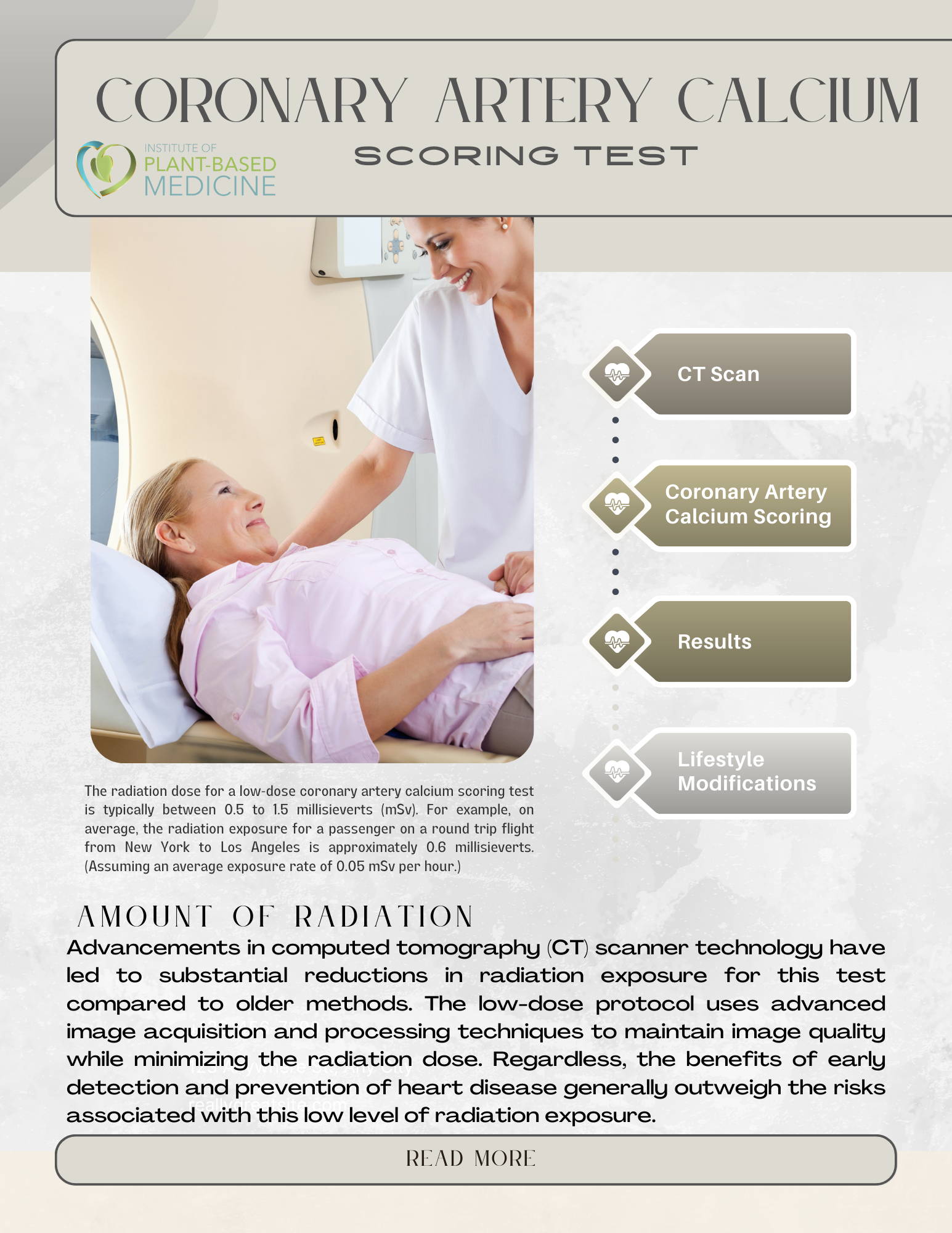No Products in the Cart
A coronary artery calcium scoring test is a valuable tool in the fight against heart disease. In this patient-friendly article, we will explain what the test is, why it's important, and how it can help prevent and manage cardiac conditions. By understanding the test and its role in cardiac prevention, you can take a proactive approach to maintaining your heart health.
A coronary artery calcium scoring test, also known as a cardiac calcium scoring or coronary calcium scan, is a non-invasive imaging test that helps determine the amount of calcium in the coronary arteries. These arteries supply blood to the heart, and calcium deposits are often an early sign of coronary artery disease (CAD), which can lead to heart attacks and other heart-related complications.
Calcium deposits in the coronary arteries can cause them to narrow, restricting blood flow to the heart. This restricted blood flow can lead to chest pain, heart attack, or even sudden cardiac death. Early detection of calcium buildup is essential for preventing these life-threatening events. The coronary artery calcium scoring test is a valuable tool for assessing your risk of developing heart disease and helps your healthcare provider create a customized prevention plan.
The coronary artery calcium scoring test is performed using a computed tomography (CT) scanner. The CT scanner takes multiple X-ray images of your heart, which are then combined to create detailed images of your coronary arteries. The test is quick, painless, and does not require any injections or dyes.
During the test, you will lie down on a table that slides into the CT scanner. You may be asked to hold your breath for a few seconds while the images are being taken. The entire process usually takes around 10 to 15 minutes.
The coronary artery calcium scoring test does expose you to a small amount of ionizing radiation, similar to the amount you would receive from a mammogram or a few months of natural background radiation from the environment. A low-dose coronary artery calcium scoring test aims to minimize radiation exposure while still providing valuable information about the presence of calcium in the coronary arteries.

The results of a coronary artery calcium scoring test are expressed as a numerical score called the Agatston score. The higher the score, the more calcium deposits are present in your coronary arteries, and the greater your risk of developing heart disease.
A calcium score of zero indicates a low risk of heart disease, while any non-zero score may prompt your healthcare provider to recommend lifestyle changes, medications, or further testing to reduce your risk of heart attack or other cardiac events. By identifying your risk level, the test helps you and your healthcare provider to create a personalized prevention plan that can include lifestyle modifications, medication management, and ongoing monitoring.
The coronary artery calcium scoring test is an essential tool in the early detection and management of coronary artery disease. By understanding the test and its importance in cardiac prevention, you can take charge of your heart health and work with your healthcare provider to develop a proactive approach to maintaining a healthy heart. Remember, knowledge is power when it comes to preventing and managing heart disease.